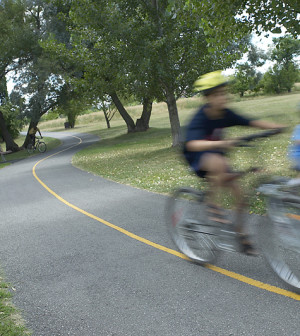- 10 Strategies to Overcome Insomnia
- Could Artificial Sweeteners Be Aging the Brain Faster?
- Techniques for Soothing Your Nervous System
- Does the Water in Your House Smell Funny? Here’s Why
- Can a Daily Dose of Apple Cider Vinegar Actually Aid Weight Loss?
- 6 Health Beverages That Can Actually Spike Your Blood Sugar
- Treatment Options for Social Anxiety Disorder
- Understanding the Connection Between Anxiety and Depression
- How Daily Prunes Can Influence Cholesterol and Inflammation
- When to Take B12 for Better Absorption and Energy
Vaccine Sharply Curbs Chickenpox Cases in U.S.


Chickenpox cases in the United States have dropped sharply since a vaccine against the disease became available in 1995, a new study shows.
Also, hospitalizations and outpatient visits for chickenpox have continued to fall since 2006, when a second dose of the vaccine was recommended to boost protection against the disease, the researchers found.
Before 1995, about 4 million people in the United States got chickenpox each year, nearly 11,000 were hospitalized, and up to 150 died of the disease, according to the U.S. Centers for Disease Control and Prevention.
For this study, CDC researchers analyzed national health insurance claims data. They found there were 93 percent fewer hospitalizations for chickenpox in 2012, and 84 percent fewer outpatient visits for the disease than in the period before the vaccine was introduced.
After the second dose recommendation took effect, hospitalizations dropped 38 percent and outpatient visits declined 60 percent, according to the study published Aug. 13 in the Journal of the Pediatric Infectious Diseases Society.
“We found that, in our study, rates for varicella [chickenpox] in the U.S. continued to decline as the varicella vaccine program has become fully implemented,” study co-author Jessica Leung said in a journal news release.
“We saw significant declines in rates of varicella after the one-dose vaccine was recommended in 1995 in the U.S., and we’re continuing to see additional declines in varicella after two doses were recommended in 2006,” she added.
The largest decrease in chickenpox occurred among children and teens aged 1 to 19, a group targeted for vaccination against the disease. But there were also significant drops in outpatient visits and hospitalizations among children younger than 12 months — for whom the vaccine is not recommended — and among adults, who tend not to get vaccinated.
These findings suggest the possibility of something called herd immunity.
“The surrounding population that can be vaccinated are not getting sick, and therefore the data suggest that these infants are also being protected,” Leung said. “We’re seeing that for adults as well.”
Chickenpox typically causes a blister-like rash, itching, fever and fatigue.
More information
The American Academy of Family Physicians has more about chickenpox vaccination.
Source: HealthDay
Copyright © 2026 HealthDay. All rights reserved.










